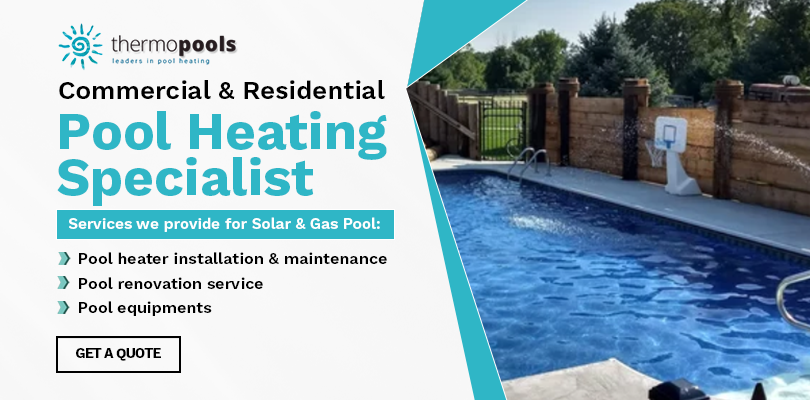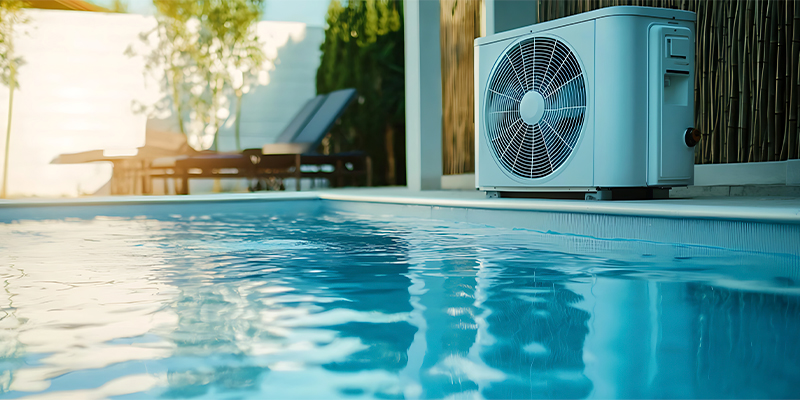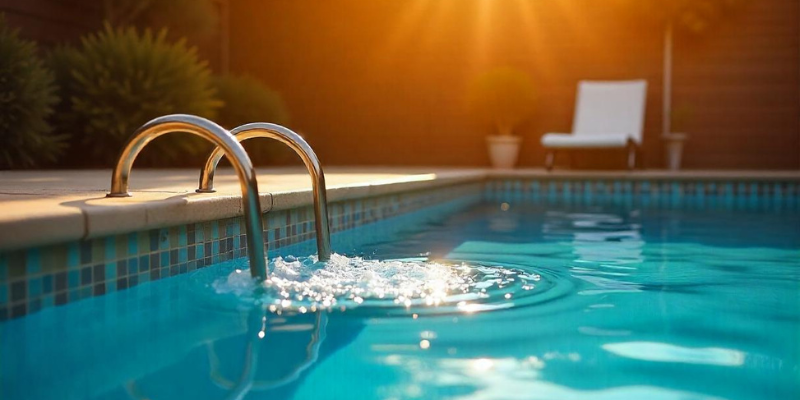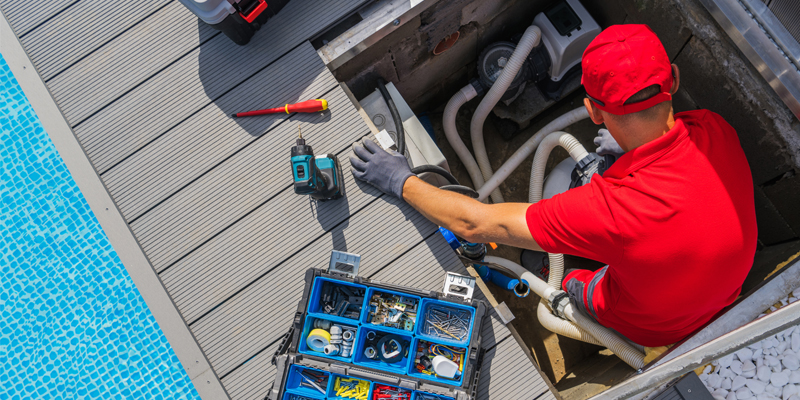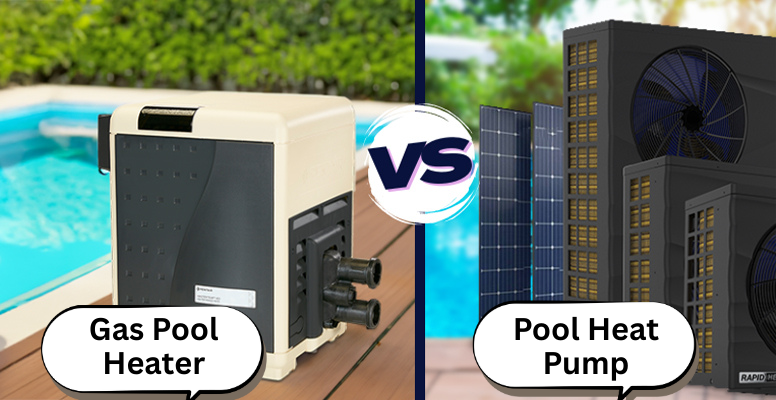
A warm pool can make your backyard a haven during the cooler months. Two popular choices for pool heating are gas pool heating and the pool heat pump. Both systems raise water temperature reliably, yet each operates on a different principle and excels under different circumstances. This blog will guide you in selecting the best pool heating system, focusing especially on the benefits of gas pool heating for many homeowners.
Gas Pool Heating: Rapid-Response Warmth
How a Gas System Works
A gas pool heater burns natural gas or LPG to generate direct heat. Water passes through a heat exchanger, where the flame warms it almost instantly. The heater shuts off once the desired temperature is reached, conserving fuel until the next activation. This on-demand function is a key advantage of gas pool heating, especially for those who want immediate results.
1. Speed of Heating
If you’re hosting a last-minute gathering or planning a weekend swim, gas pool heating delivers fast results. It often heats a spa in under an hour and a large pool in just a few hours. You won’t need to leave the unit running continuously. Flick it on, wait for the gauge to climb, then dive in.
2. Control and Convenience
You can program your gas pool heater to start via a smartphone app or wall-mounted controller. That means you can set the heater to kick in on your way home from work, arriving at the water at a comfortable temperature. You enjoy precise control over start times and run duration, helping you avoid unnecessary fuel costs—an essential part of cost-effective gas pool heating.
3. Cold-Weather Performance
Since the heat source is independent of air temperature, gas pool heating performs similarly on chilly mornings or late-autumn nights. If you pair it with a solar blanket, gas top-ups will work faster, ensuring you get the most from your existing solar setup.
4. Best Fit for Occasional Use
A gas pool heater is perfect when you need on-demand heat: surprise spa nights, one-off pool parties or short-notice swim sessions. Its ability to deliver high temperatures quickly makes it the choice for users who don’t run the heater daily but still demand reliable warmth whenever they choose. Gas pool heating allows flexibility without long warm-up periods or high standby costs.
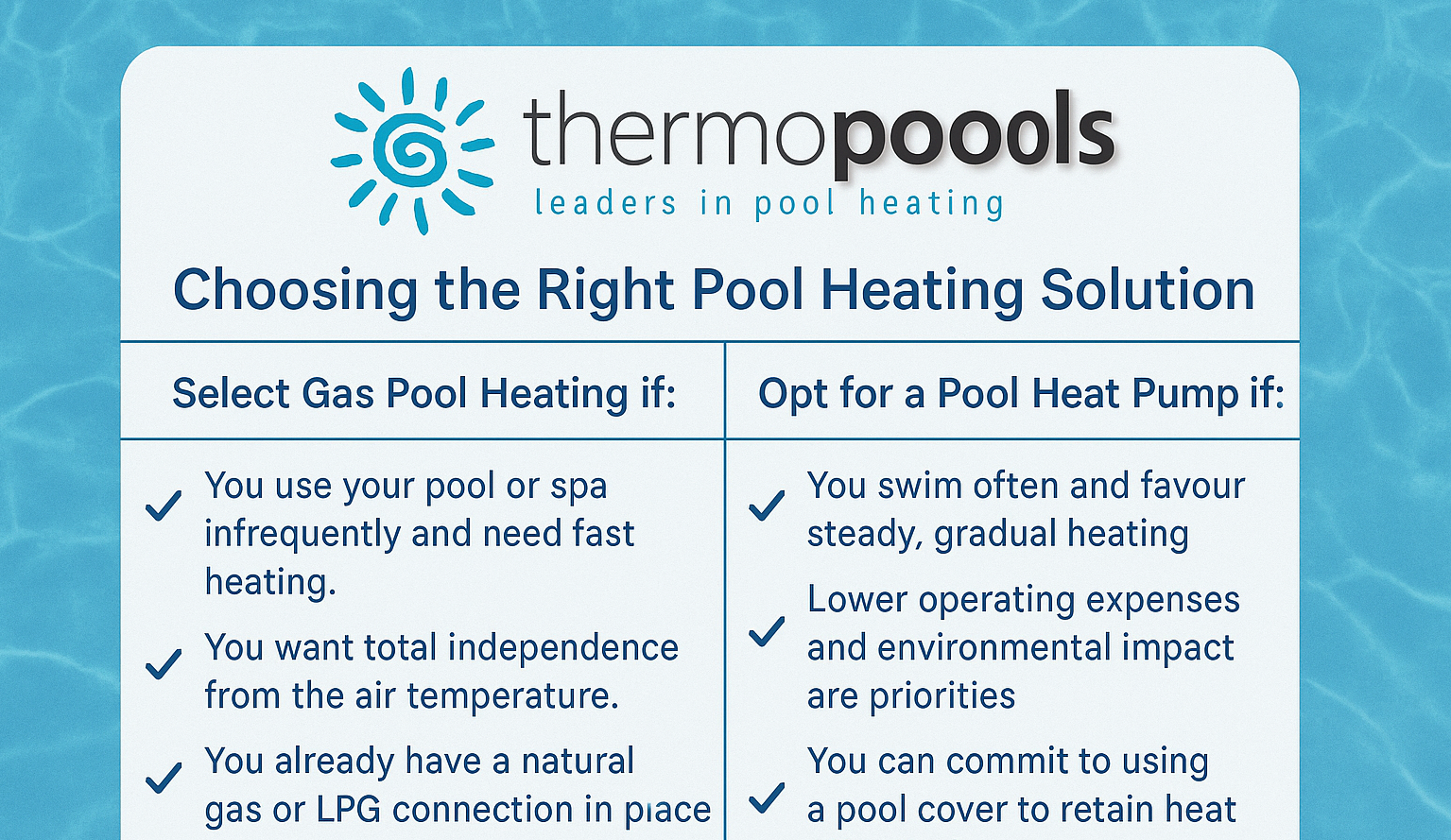 Pool Heat Pump: Economical and Eco-Friendly
Pool Heat Pump: Economical and Eco-Friendly
The Pool Heat Pump Mechanism
A pool heat pump moves heat from the surrounding air into the water. Air moves over an evaporator coil containing refrigerant, which vaporises and then compresses into a high-temperature gas. That heat is finally transferred to your pool water through a condenser. While not as fast as gas pool heating, a pool heat pump is an efficient and consistent system.
1. Running Costs and Efficiency
Thanks to its heat-transfer process, the pool heat pump can deliver 3–5 times more energy than it consumes. Electricity bills often end up lower than gas pool heating—especially if you run the heat pump daily to keep water at a steady temperature.
2. Lower Carbon Impact
A pool heat pump emits less carbon dioxide because it reuses ambient heat rather than burning fuel. Pairing it with solar power further shrinks your carbon footprint. A pool heat pump is an outstanding choice in areas where environmental credentials matter more than rapid heat-up times provided by gas pool heating.
3. Role of a Pool Cover
A blanket or solar cover is vital for retaining warmth when using a pool heat pump. Covering the water at night or during idle periods traps heat at the surface. With the cover on, your heat pump will reach and maintain the set temperature faster, saving energy. The same applies to gas pool heating, where retaining heat with a cover reduces runtime and fuel use.
4. Ideal for Consistent Use
Pool heat pumps are most cost-effective when running regularly. If you swim several times a week, the pump’s steady-state operation will keep your pool ready for use, avoiding the spikes in energy consumption seen with enormous, intermittent heating demands—something that can be common with non-strategic gas pool heating.
Choosing the Right Pool Heating Solution
1. Select Gas Pool Heating if:
- You use your pool or spa infrequently and need fast heating.
- You want total independence from the air temperature.
- You already have a natural gas or LPG connection in place.
- You prefer on-demand functionality with minimal wait time.
2. Opt for a Pool Heat Pump if:
- You swim often and favour steady, gradual heating.
- Lower operating expenses and environmental impact are priorities.
- You can commit to using a pool cover to retain heat effectively.
Still Deciding? Let’s Find the Right Pool Heating System for You!
Whether you swim every day or just on weekends, the right pool heating system makes all the difference. A pool heat pump offers long-term energy savings and eco-friendly performance, while gas pool heating gives you instant, powerful warmth exactly when you need it.
Not sure which option fits your lifestyle, budget, and climate best?
Call Thermo Pools on (02) 88 50 40 30 for expert advice or visit our profile for gas pool heating setup for your pool.





